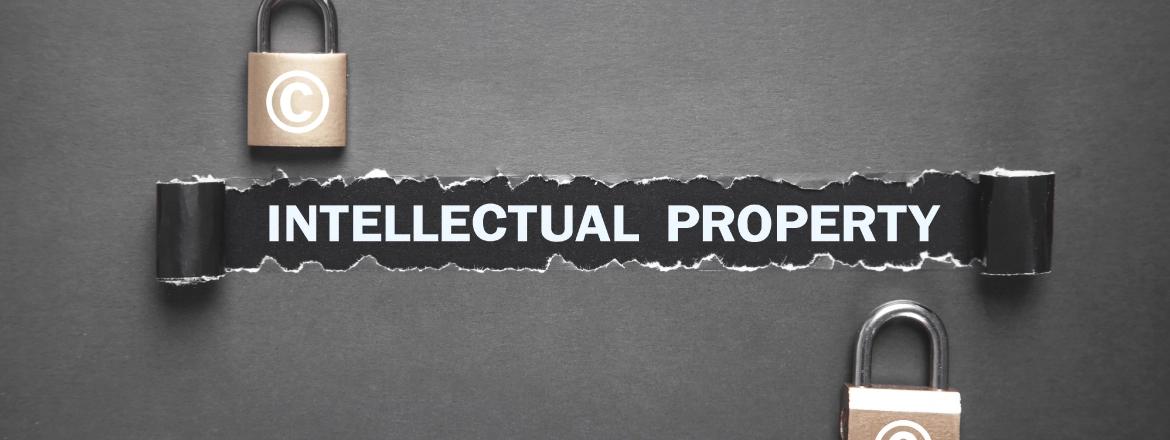In the modern digital world, intellectual property protection is becoming increasingly important. Internet piracy and copyright violation jeopardize the performance of many companies and individuals, whether it's music, video, literary works or software. In this article, we'll look at what threats to IP exist in the online world, and what ways of protecting intellectual property should be utilized.
Understanding Intellectual Property
This is a key aspect in safeguarding your creativity and innovation. First, let's understand what intellectual property includes.
So, this covers the different types of creative and intellectual products that can be protected by law:
- copyrights in artistic, interactive, literary, video and musical works;
- patents for inventions and innovations;
- trademarks to identify brands and products;
- trade secrets, which include confidential information about a company and bring it a competitive advantage.
It's also critical to understand what rights and privileges are granted to IP owners. For example, copyrights grant you control over the use of your creation, including the right to replicate, distribute, and create derivative works. Patents provide you with an exclusive license to exploit your invention for a certain period of time. Trademarks can safeguard your brand against duplication by other companies.
The Online Threat Landscape for IP
The Internet world is a fertile ground for various intellectual property violations. Content piracy is a major threat where illegal copies of music albums, movies, books and software are distributed over the Internet, often without the permission of the copyright holders. This not only damages the income of the owners but also undermines their control over the use and distribution of their exclusive content.
Another serious threat is copyright theft, when someone uses another person's creative work without permission: publishing it on their website or social media, or using it for sale (e.g., printing someone else's designs on merchandise). This can lead to the author losing control of his creation, reducing its commercial value and even loss of profit.
Illegal copying and distribution of software also pose a serious threat to IP. Pirated software not only infringes on the rights of developers, but can also be a source of malware that damages users and their data. All of these threats require careful monitoring and measures to safeguard IP in the online environment.
It's important to have a good understanding of your rights as a content creator or innovator to effectively defend your creations against any encroachment. This includes seeking advice and support from IP specialists, as well as staying up-to-date on changes in the law and technology trends that may affect your practice and its protection.
4 Ways to Protect Intellectual Property
Protecting IP in the digital environment requires a comprehensive approach. Here are four key strategies to help you protect your personal labor:
- Use of legal means. Copyright, patent and trademark registrations provide you with legal grounds to protect your IP. They give you individual rights to use and distribute your content or product, as well as the ability to take legal action in the event of infringement.
- Implementing technical solutions for copyright assets. Digital signatures, watermarks, DRM and other technical tools can assist you in securing your content from unauthorized use and sharing in the online space. They provide control over access to your creations and can prevent them from being illegally copied.
- Monitoring and response. Regular surveillance and rapid reaction to infringements are essential components of an effective intellectual property protection strategy. Be prepared to take action to enforce your rights if infringement is detected, including contacting law enforcement or judicial authorities.
- Using reliable online services. In order not to waste time on monitoring the Internet yourself and identifying threats, you can turn for help to an expert in this field. DigitAge offers a comprehensive approach to the protection and control of your IP. Our Anti-Piracy Protection service is a multifunctional tool that ensures your security in the digital space, timely detects and suppresses illegal activities related to copying and use of your personal data, creations and products.
These four methods combined will provide strong protection for your IP and help prevent its illegal use, duplication and dissemination on the Internet.
Conclusion
Protecting your IP is an integral part of any content creator's or brand's strategy. Understanding the threats and taking appropriate protective measures will help preserve the results of your labor and ensure your success in the digital age.
Don't leave intruders to steal your backbreaking work - contact the experts at DigitAge, and we'll help you to protect your IP assets!
Frequently Asked Questions
1. What is intellectual property and why is it important?
Intellectual property includes unique products created by the human mind, such as inventions, literary and artistic works, designs, and symbols. Intellectual property can be your competitive advantage and prevent competitors from entering your market. It helps you build your brand and expand your business. The more IP assets your business has, the higher the valuation it can receive to attract investors and buyers.
2. What types of intellectual property exist?
There are several types of IP: copyrights, patents, designs, trademarks, and trade secrets.
3. How can I protect my IP assets from online infringements?
It's highly recommended that you register your IP in the countries where you have business interests. This will make it easier for you to monitor the Internet and assert your rights.
4. What should I do if my intellectual property has been infringed online?
Your course of action should be accordingly designed depending on where you spotted the infringement. Online e-commerce marketplaces, social media platforms, and Internet service providers have developed their channels for submission and rules to follow to report infringement incidents. You can contact them directly, or you can make it easier and hire an intellectual property lawyer or a brand protection agency such as DigitAge to assist you with this issue.

